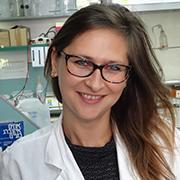As part of the Gershoni laboratory, my research is focused on exploring protein-protein interactions using phage-display technology, namely through the identification of neutralizing epitopes on viral antigens and their use as potential immunogens.
Over the years, I studied the interaction between the surface glycoprotein of HIV-1, gp120, and its cellular receptor, CD4, in an attempt to accentuate conserved, neutralizing epitopes of the envelope using a unique phage-displayed peptide. HIV-1 gp120 harbors two distinct epitope targets for vaccine development: CD4i epitopes and the CD4 binding site itself. Induction of the CD4i epitopes results in occupation of the CD4 binding site and thus, inaccessibility to immune scrutiny. Our phage-displayed peptide immuno-modulator binds gp120 without obscuring the CD4 binding site while allosterically inducing the CD4i conformation thus producing a gp120 vaccine modality able to present both vaccine targets simultaneously.
Another aspect of our research was the use of random peptide libraries combined with next generation sequencing to examine the repertoire of antibodies in serum and discover discriminating features characteristic of various clinical situations with the goal to develop high through put diagnostics. Over the years, our lab was studying SARS CoV-1 and MERS CoV by critically evaluating the co-crystals of viral spikes bound to their cognate receptors or neutralizing antibodies. The spike binding surfaces were used as guides for the functional reconstitution of novel immunogens for SARS CoV-1 and MERS CoV. In light of the global outbreak of COVID-19, our efforts are now focused on the reconstitution of a novel epitope-based vaccine modality against SARS CoV-2.
Contact:
Tel: +972 -52 -5257528
E-mail: roitburda@gmail.com


